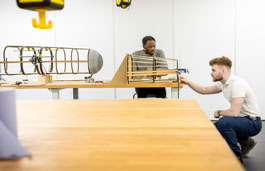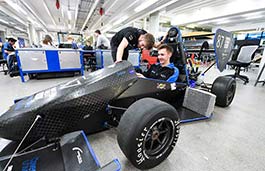Search
Aerospace Technology BEng (Hons)
Study level: Undergraduate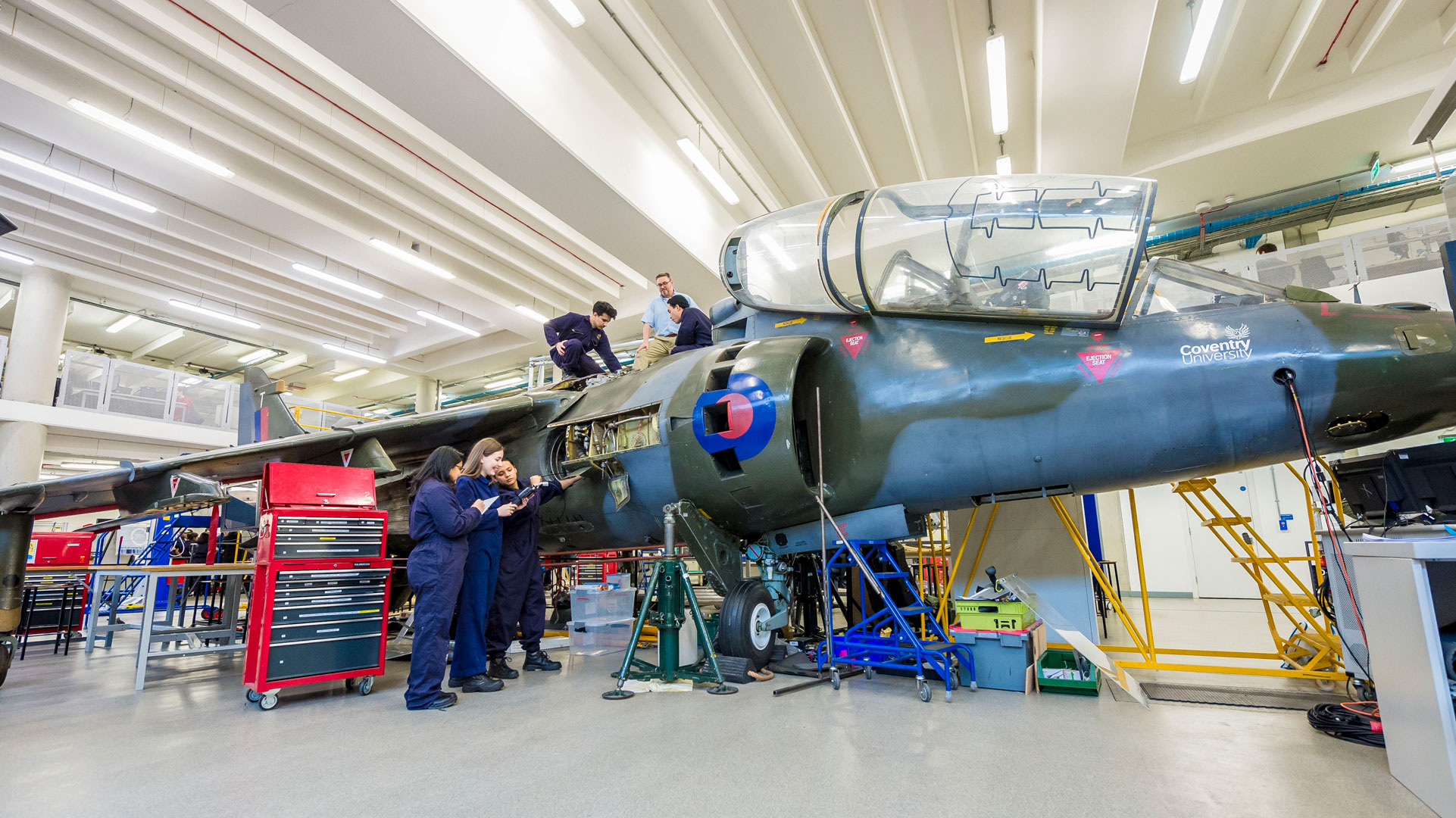
Develop core aerospace engineering knowledge and gain practical experience using contemporary facilities and industry-standard tools, supporting your preparation for roles in aerospace engineering, design, manufacturing and related technologies.
Course features
Course option
Year of entry
2026-27
Location
Coventry University (Coventry)
Study mode
Full-time
Sandwich
Duration
3 years full-time
4 years sandwich
UCAS codes
H402
Start date
September 2026
November 2026
January 2027
March 2027
May 2027
July 2027
Course overview
If you’re interested in aircraft, spacecraft and emerging aviation technologies, then this course may be the right fit. It is designed to cover core aerospace engineering principles and includes practical experience with industry-standard tools to support your preparation for a range of roles in the sector.
Key features
- Core aerospace skills: learn aircraft structures, propulsion, aerodynamics, aerospace management and avionics.
- Industry-aligned training: work with CAD, CFD, FEA, MATLAB and prepare for real-world engineering challenges.
- Career-focused opportunities: you could have the opportunity to study abroad, go on a placement or work on projects with industry collaborators.2
Rated Gold Overall
Teaching Excellence Framework (TEF) 20235 QS Stars for Teaching and Facilities
QS Stars University RatingsTop 5 Student City in England (Coventry)
QS Best Student Cities Index 2026Why you should study this course
- Hands-on experience with industry-standard tools: gain practical skills by using CAD, CFD, FEA, and MATLAB to design and test aerospace systems, helping you build relevant engineering expertise for your future career.
- Access to contemporary facilities: apply your learnings in high-tech engineering environments, including access to our equipment such as full-size aircraft (Harrier Jump Jet), full motion flight simulators, low and high-speed wind tunnels, and unmanned aerial vehicle labs.4
- Industry-relevant projects and placements: work on group projects focused on real-world aerospace challenges. Optional industry placements2 are also available to help you gain experience and support your employability.
- Focus on future aviation technologies: study sustainable aviation, electric propulsion, and UAVs (embedded) to prepare for careers in emerging fields like urban air mobility and space systems.
- Strong career prospects and global opportunities: previous graduates have gone on to work in roles in Airbus, Rolls-Royce, BAE Systems, and Meggit. You can also choose to apply for an optional study abroad year to get international exposure.2
This course is designed to help you develop both technical and professional skills to prepare for roles in the aerospace industry.
for Aerospace Engineering
Guardian University Guide 2024
What you'll study
This course covers core engineering principles, including aerodynamics, propulsion, aircraft structures, aerospace management and avionics.
You’ll use industry-standard tools like CAD, CFD, and MATLAB for design and analysis, and have the opportunity to apply your learnings through projects with access flight simulators, low and high-speed wind tunnels, and UAVs4. Themes such as sustainable aviation, electric propulsion and emerging aerospace technologies are integrated throughout the course.
Industry- and research-informed group projects and an optional placement aim to give you the opportunity to get real-world experience and prepare for roles in aerospace engineering, manufacturing and advanced air mobility2.
We regularly review our course content, to make it relevant and current for the benefit of our students. For these reasons, course modules may be updated.
How you'll learn
Your course will incorporate a range of learning and teaching methods as part of our innovative activity-led learning.
We encourage you to learn through stimulating activities, such as a projects, problems, scenarios, case studies or enquiries in a classroom, laboratory or work setting.
We aim to present knowledge in an integrated way to reflect the multiplicity and interaction between many types of scientific, commercial, manufacturing and managerial skills and knowledge, necessary to produce a successful engineering product or system.
The course aims to give you the opportunity to work with staff on real-world problems from industry, commerce and research groups, as you would in professional practice; this means that you can develop all the professional skills at the same time as learning the technical content of your degree.
Teaching contact hours
As a full-time undergraduate student, you will study modules totalling 120 credits each academic year. You will normally study one 30-credit module at a time. A typical 30-credit module requires a total of 300 hours of study made up of teaching contact hours, guided and independent study.
Teaching hours
Teaching hours may vary depending on your year of study and selected modules. During your first year, you can expect 12-15 teaching hours each week. You will also have the option to attend additional sessions, including time with a progress coach or to meet with staff for advice and feedback. As you progress through your studies, teaching hours may reduce.
Guided and independent study
Throughout your studies, you will be expected to spend time in guided and independent study to make up the required study hours per module. You’ll be digging deeper into topics, review what you’ve learned and complete assignments. This can be completed around your personal commitments. As you progress through your studies, you’ll spend more time in independent study.
Online learning
As an innovative university, we use different teaching methods including online tools and emerging technologies. So, some of your teaching hours and assessments may be delivered online.
Assessment
This course will be assessed using a variety of methods which will vary depending upon the module.
Assessment methods may include:
- formal examinations
- phase tests
- essays
- group work
- presentations
- reports
- projects
- coursework
- exams
- individual assignments.
The Coventry University Group assessment strategy ensures that our courses are fairly assessed and allows us to monitor student progression towards achieving the intended learning outcomes.
International experience opportunities
Most work placements have been within the UK, but previous students have been placed in GKN Aerospace (Munich, Germany), Bertrandt (Hamburg, Germany) and Airbus (Toulouse, France). The majority of study abroad students have studied at high education institutions within Europe, including Aerospace Engineering at UPM, Spain.
Previous students on the programme have had the opportunity to gain experience of the industry first-hand through our exciting industry-focused field trips, which have previously included the Emirates Aviation University and Emirates Engine Test Centre in Dubai, National Transportation Safety Board (NTSB) and NASA Goddard Space Flight Centre in the US and Airbus (Toulouse), Airbus (Marseille) and Finmeccanica in Europe.
Please note that all international experience opportunities may be subject to additional costs, competitive application, availability, and meeting applicable visa and travel requirements, and are therefore not guaranteed2.
Entry requirements
Typical entry requirements:
Not got the required grades? We offer this degree with an integrated foundation year.
Fees and funding
| Student | Full-time | Part-time |
|---|---|---|
| UK, Ireland*, Channel Islands or Isle of Man | 2026/27 fees TBC 2025/26 fees: £9,535 per year |
Not available |
| EU | 2026/27 fees TBC 2025/26 fees: £9,535 per year with EU Support Bursary** 2026/27 fees TBC 2025/26 fees: £19,850 per year without EU Support Bursary** |
Not available |
| International | 2026/27 fees TBC 2025/26 fees: £19,850 per year |
Not available |
If you choose to study this course with a professional placement2 or study abroad year, you will need to pay a tuition fee3 to cover your academic support throughout your placement year. Students commencing their professional placement in the academic year 2027/28 will pay £1,500 if they are paying UK fees, or £1,800 if they are paying international fees.
For advice and guidance on tuition fees and student loans visit our Undergraduate Finance page and see The University’s Tuition Fee and Refund Terms and Conditions.
The University will charge the tuition fees that are stated in the above table for the first Academic Year of study. The University will review tuition fees each year. For UK (home) students, if Parliament permits an increase in tuition fees, the university may increase fees for each subsequent year of study in line with any such changes. Note that any increase is expected to be in line with inflation.
If you choose to study this course with a professional placement, the University will charge the tuition fees stated above for those on a placement during Academic Year 2027/28. The University will review professional placement tuition fees each year. For UK (home) students, the University may increase fees for each subsequent year of study, but such that it will be no more than 5% above inflation.
For international students, we may increase fees each year, but such increases will be no more than 5% above inflation. If you defer your course start date or have to extend your studies beyond the normal duration of the course (e.g. to repeat a year or resit examinations) the University reserves the right to charge you fees at a higher rate and/or in accordance with any legislative changes during the additional period of study.
We offer a range of International scholarships to students all over the world. For more information, visit our International Scholarships page.
Tuition fees cover the cost of your teaching, assessments, facilities and support services. There may be additional costs not covered by this fee such as accommodation and living costs, recommended reading books, stationery, printing and re-assessments should you need them. Find out what's included in your tuition costs.
The following are additional costs not included in the tuition fees:
- Any optional overseas field trips or visits: £400+ per trip.
- Any costs associated with securing, attending or completing a placement (whether in the UK or abroad).
*Irish student fees
The rights of Irish residents to study in the UK are preserved under the Common Travel Area arrangement. If you are an Irish student and meet the residency criteria, you can study in England, pay the same level of tuition fees as English students and utilise the Tuition Fee Loan.
**EU Support Bursary
Following the UK's exit from the European Union, we are offering financial support to all eligible EU students who wish to study an undergraduate or a postgraduate degree with us full-time. This bursary will be used to offset the cost of your tuition fees to bring them in line with that of UK students. Students studying a degree with a foundation year with us are not eligible for the bursary.
Facilities
All students both on and off-site have access to, and receive training on, commercial engineering software, including 3D CAD, Finite Element Analysis, Computational Fluid Dynamics and Multibody Dynamic Systems for design, simulation and analysis4.
Our excellent practical facilities include a full-size Harrier Jet (used for teaching), six full-scale flight simulators, wind tunnels, UAV workshop, flow and heat transfer labs, composites lab, metrology lab, electrical/electronics lab, fatigue and tensile testing (Instron), a range of CNC machinery, banks of 3D printers and a laser workshop4.
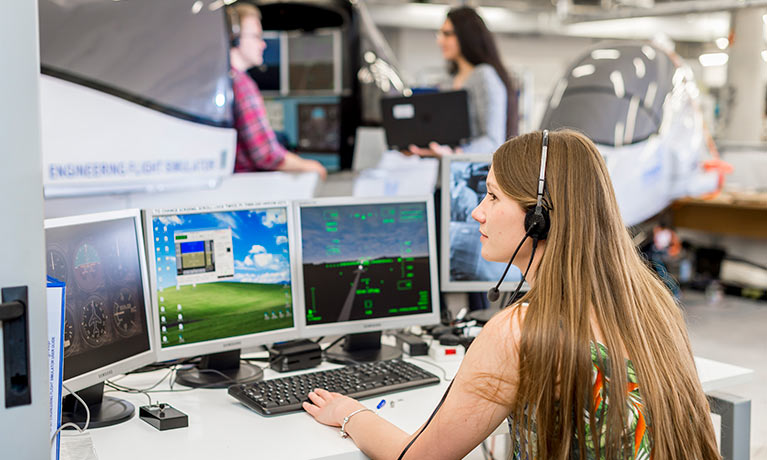
Flight Simulators
Our simulators create an exciting way to learn, with 61 channels of flight data which can be analysed to assess the accuracy of a student's own design. The simulators are incorporated into an air traffic control environment.
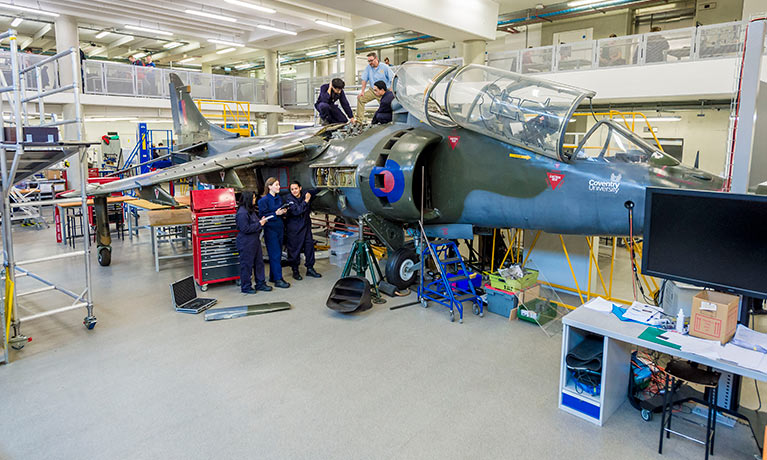
Harrier Jet
Our Harrier T4 allows students to gain hands-on experience with the parts, tools and mechanical aspects of a real aircraft. It is used by many engineering disciplines to learn how an aircraft works and how to maintain it.
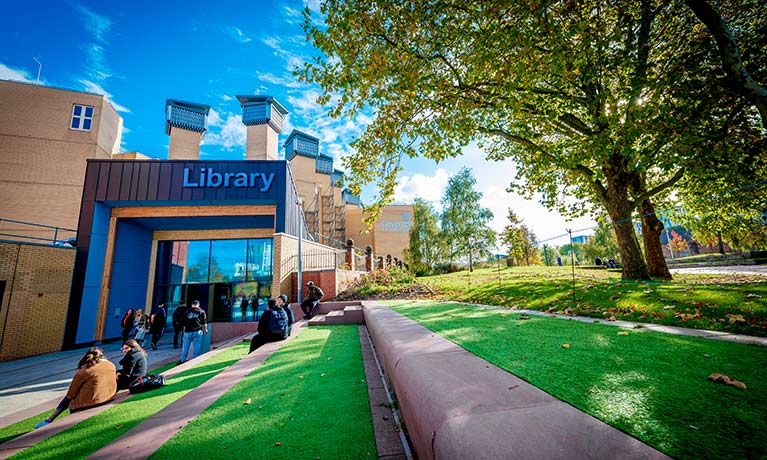
Lanchester Library
You will have full reading rights in Coventry University's Lanchester Library. The library is usually open 364 days a year and has many study spaces, including group and silent areas. It also currently offers touchdown computers and free-to-loan laptops.
Facilities are subject to availability. Access to some facilities (including some teaching and learning spaces) may vary from those advertised and/or may have reduced availability or restrictions where the university is following public authority guidance, decisions or orders.
Careers and opportunities
Upon successful completion of the course you should be able to:
- demonstrate knowledge and understanding of scientific and mathematical principles to solve application problems in the aerospace industry
- use quantitative and computational methods, interpret the results of analysis and modelling of an aerospace application problem to recommend an appropriate action using the relevant technology
- demonstrate a comprehensive understanding of design, design processes and limitations, and life cycle management in developing solutions
- clearly and appropriately communicate complete solutions using both written and oral formats
- understand the need for professional and ethical conduct in a commercial, economic and social context, by appraising the sustainable development and the regulations governing engineering activities in order to critique the risk, legal and contractual issues and intellectual property
- demonstrate knowledge of a range of aerospace products, processes, materials and standards, including an awareness of quality issues and their application to continuous improvement
- evaluate uncertain and incomplete technical data/information and perform practical laboratory work in order to identify the impact on design
- develop independent learning and problem-solving skills appropriate to your study level and future employment
- apply management techniques by contributing to a team with the necessary planning, monitoring, adaptability, drive and leadership to achieve the required objectives of an aerospace-related project.
Where our graduates work
Previous graduates have obtained jobs as systems design engineers for large aircraft and propulsion manufacturers, e.g. Airbus, BAE Systems, GE Aviation and Rolls Royce, as well as systems suppliers to the aviation industry including Meggitt, Goodrich, Moog and Collins Aerospace.
Further study
You can choose to continue your studies at Coventry University with the Advanced Aerospace Engineering MSc. You may be entitled to an alumni discount on your fees if you decide to extend your time with us by progressing from undergraduate to postgraduate study.

Discover Phoenix+
Phoenix+ brings you together with other students to learn, experience and develop essential knowledge and skills. Whatever destination you choose, it's about preparing you for life after university.
Learn more about Phoenix+How to apply
You may also like
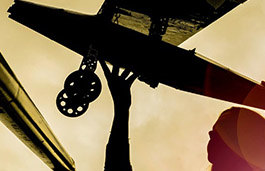
Aerospace Engineering MEng/BEng (Hons)

Mechanical Engineering MEng/BEng (Hons)
